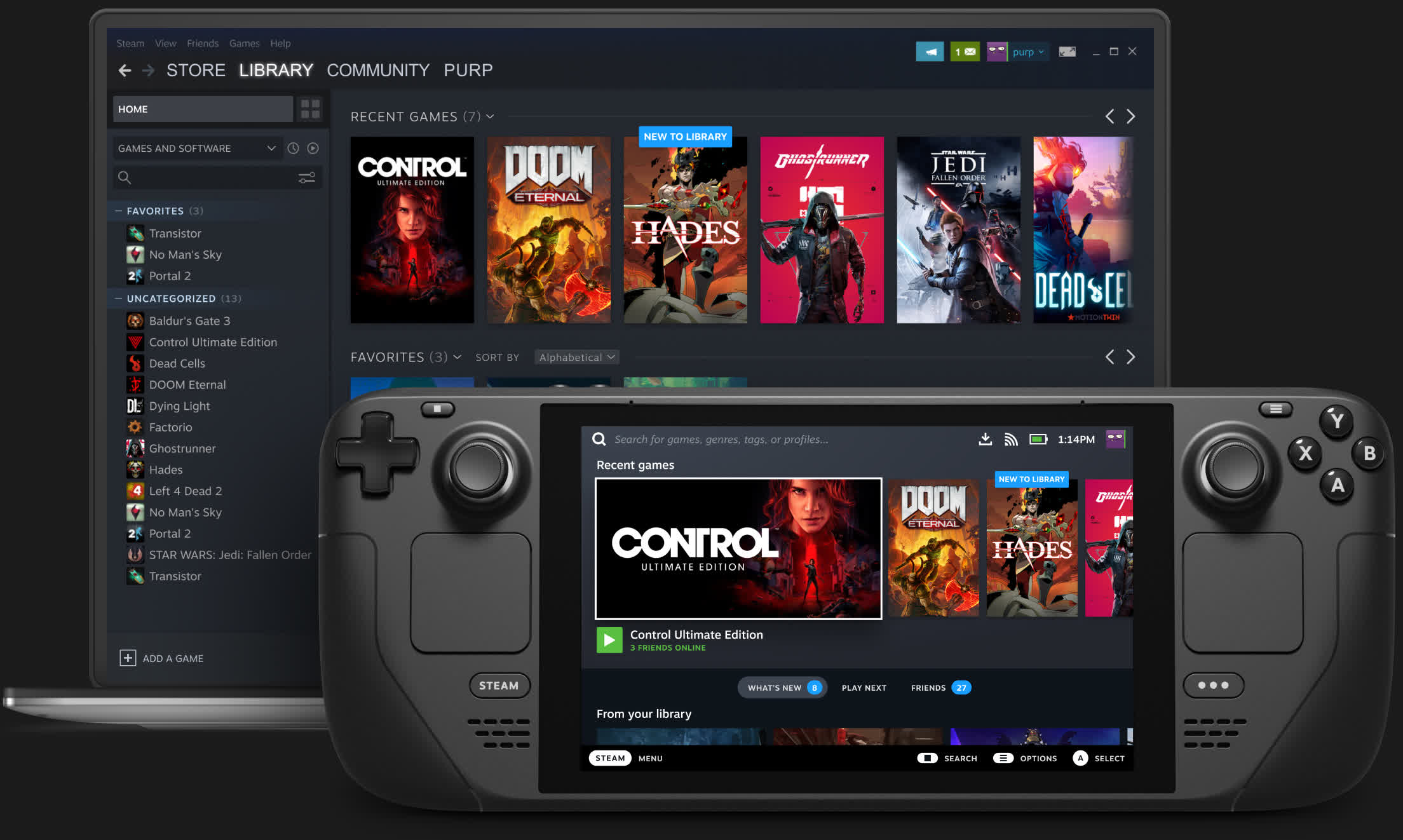What just happened? After months of waiting and an additional two-month delay, Valve's Steam Deck is less than three weeks away from launching. The publisher, developer and distributor recently seeded review units to a handful of YouTube influencers to gauge their initial opinions, and the embargo has finally lifted.
Linus from Linus Tech Tips describes the Steam Deck as arguably the most innovative gaming PC in the last 20 years. It starts with the inputs, and while there are plenty of them, it may be difficult for those with smaller hands to reach everything comfortably without readjusting your grip.
As for the buttons, sticks and touch pads themselves, Linus said everything is on par quality-wise with controllers that ship alongside top-tier consoles.
Cooling also wasn't an issue, as the handheld's design keeps surface temps at or near skin temperature, even during extending gaming sessions.
As for performance, Linus said most users will be best served leaving the SoC profile on auto. But for enthusiasts, there is the option to fine-tune the power profile for your exact use case - for example, if you want to run a specific emulator that requires more CPU power than GPU power.
When looking at performance numbers, it's worth mentioning that Valve did hand-pick which games could be run in the early preview. Still, there are some heavy-hitters here including Forza Horizon 5, Devil May Cry 5, Control, Ghostrunner and Street Fighter V: CE. There were some issues with Forza, but this could be a software issue that should get worked out once a Windows driver becomes available.
Linus was also impressed with battery life, but it was the Steam Deck's screen that impressed him even more. It's not shocking vibrant, nor does it exhibit over-the-top sharpness, but it excels in dimly-lit environments. He also praised the speakers as being excellent for their size.
Software could make or break the Steam Deck, Linus concludes, as the device could use a lot of work in this category.
Steve Burke from Gamers Nexus, meanwhile, has shared a 35-minute feature on the Steam Deck with a heavy focus on hardware (Valve is apparently still working on the software side, so not too much can be said there just yet).
He starts out with a Schlieren imaging test, which visualizes the density gradient change of the air coming out of the top of the Steam Deck. If you've never seen this sort of test in action, it's worth checking out just to familiarize yourself with it.
Burke also wired up thermocouples to take direct measurements as close to the silicon as possible and conducted eight different scenarios with varying loads. No punches were pulled, as one torture test consisted of playing a game while charging from a low battery. Their results were largely in line with the in-house testing that Valve shared for validation purposes.
The team tested with the Steam Deck's back cover removed and found that in many cases, the rear cover actually helps with cooling, no doubt aiding in airflow routing. Burke did think that Valve could do a better job with fan speed transition, as the ramp and deramp in fan speed is quite noticeable.
Speaking of fan speed and thus noise, under max power draw, noise was measures at around 37-38 dBA.
Gamers Nexus also put the unit's 40Whr battery - and Valve's claim of anywhere from two to eight hours of runtime - to the test. Of course, the game(s) you are playing will largely dictate battery life. There's a lot of data to comb over in this section, so for the sake of brevity, we'll let you explore the video on your own to gather those test results.
If you're still on the fence or simply want yet another perspective on the Steam Deck, I'd highly recommend checking out the above review from The Phawx. I'm personally not familiar with this YouTuber and it doesn't seem he has a huge following compared to Linus and Steve, but his feature is close to an hour long and looks to have high production quality. Also, props to Valve for supporting a "smaller" YouTuber.
The first batch of Steam Decks will start shipping to early buyers at the end of the month. Pricing starts at $399 for a model with 64GB and scales up to $649 if you want a unit with a 512GB NVMe SSD. Current expected order availability - meaning if you were to reserve a unit today - is listed as "after Q2 2022" for all variants.
